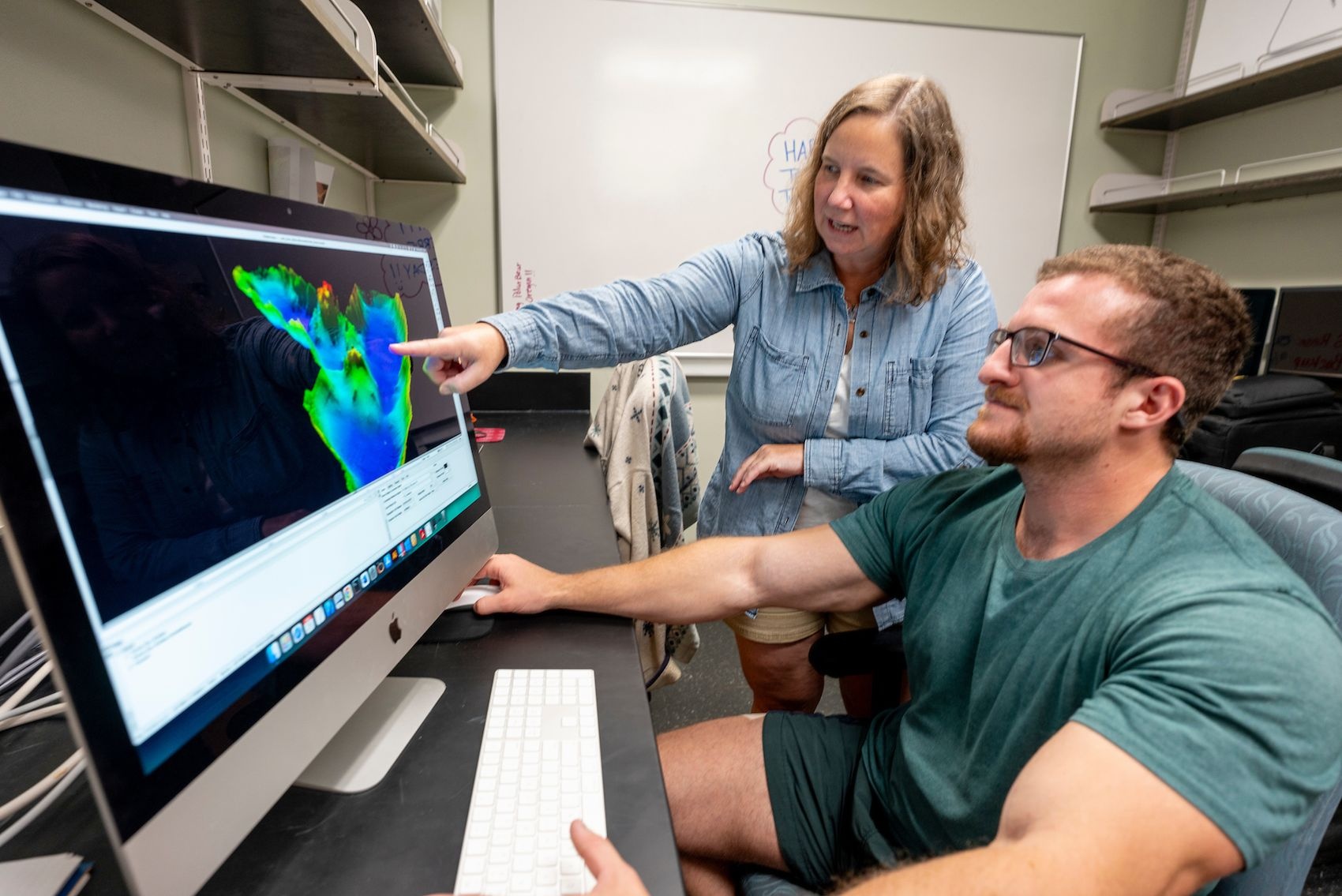
Photo: Jeff Janowski/UNCW
UNCW applied coastal and ocean sciences doctoral student, Chris Blanco, has been awarded over $10,000 in radiocarbon analyses by the National Ocean Sciences Accelerator Mass Spectrometry (NOSAMS) facility at the Woods Hole Oceanographic Institute (WHOI) to advance his palaeoceanographic research. NOSAMS generates high accuracy, high precision radiocarbon data in a timely manner for seawater, groundwater, organic carbon, carbonates, sediments, individual compounds and many other carbon-containing materials.
Blanco will conduct the analyses first-hand at WHOI, a significant opportunity for him as there are only a few AMS facilities in North America. “The funding provides Chris with a unique learning opportunity while collecting those important and expensive radiocarbon dates necessary for palaeoceanographic and paleoclimate research,” said Chad Lane, chair of the UNCW Department of Earth and Ocean Sciences.
Blanco is advised by Andrea Hawkes, professor of earth and ocean sciences. In 2022, the two were part of a team on a research cruise on the Bering Sea onboard the R/V Sikuliaq. Blanco’s research involves analyzing sediment cores collected from fjord environments in the Aleutian Islands to identify evidence of ancient tsunamis, extratropical cyclones and volcanic eruptions.
“This grant will provide me with the invaluable opportunity to conduct radiocarbon dating analyses at WHOI,” said Blanco. “The radiocarbon dates will be incorporated into Bayesian age-depth models, which will statistically infer sedimentation rates throughout my sediment cores. The model will chronologically contextualize sediment layers generated by these natural hazard events, likely extending back several millennia."
This article has the following tags: UNCW News Homepage Research & Innovation CSE - College of Science & Engineering Earth & Ocean Sciences


